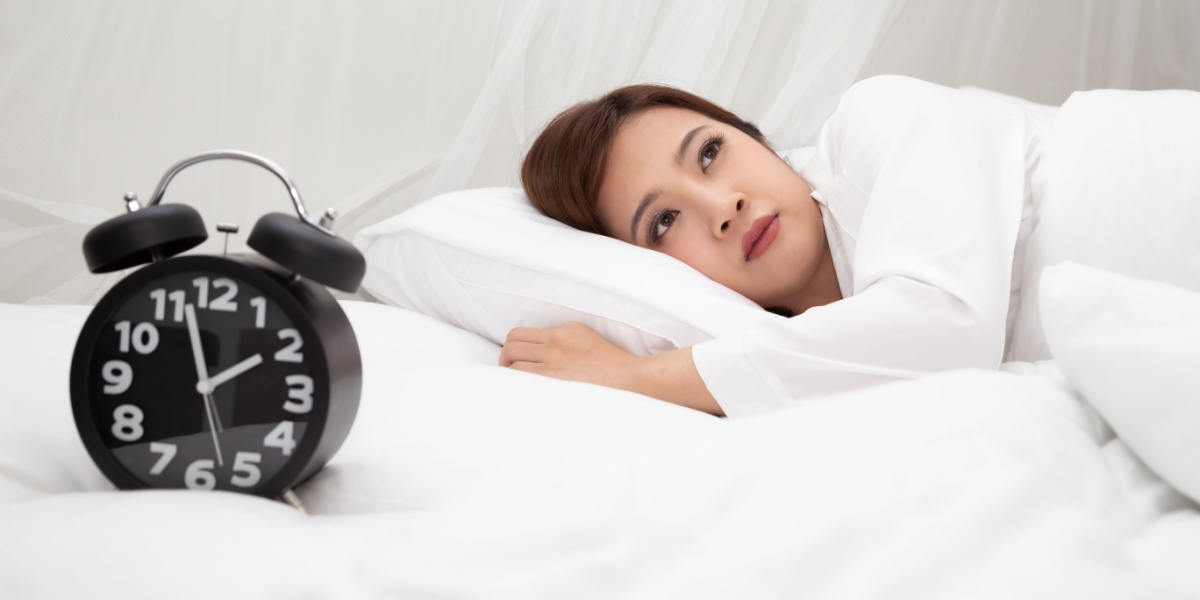Body Rhythms and Bipolar Disorder
Circadian rhythms are internal processes that regulate key physiological functions such as sleep, hormone production, and body temperature. These rhythms follow a 24-hour cycle and play a critical role in maintaining physical and mental health. In individuals with bipolar disorder (BD), disruptions in circadian rhythm have been linked to the onset and severity of mood episodes. Research suggests that managing circadian stability may help reduce symptoms and improve overall outcomes. Understanding this connection is essential for developing effective treatment strategies tailored to the unique needs of those living with bipolar disorder.

What are Circadian Rhythms?
Circadian rhythms are natural, internal processes that regulate different physiological functions of the body. They follow a 24-hour cycle, influenced by external factors such as light exposure and temperature. Circadian rhythms are integral in maintaining good health and well-being for BD patients and the general public [1].
The key functions of circadian rhythm include:
- The sleep-wake cycle: Circadian rhythms regulate the timing of sleep and wakefulness. In other words, it causes us to feel tired at night and awake in the morning, ensuring a healthy and consistent sleep cycle.
- Hormone production: Important hormones, such as melatonin and cortisol, follow circadian rhythms. These hormones impact several critical daily processes, including stress management, metabolism, and sleep.
- Body temperature: Circadian rhythms also affect our core body temperature, which fluctuates throughout the day. It’s generally lower at night and slightly higher during the day.
- Digestive function: Circadian rhythms also influence our eating habits and digestive system. They affect how the body processes food and its nutrients.
How Circadian Rhythm Disruption Affects Bipolar Disorder
Disruptions in the circadian rhythm can significantly impact individuals diagnosed with bipolar disorder. To be more specific, these disturbances can trigger or exacerbate bipolar symptoms, including:
- Mood episodes: Disruptions in circadian rhythms are likely to trigger manic episodes in BD patients, characterized by heightened energy levels, a reduced need for sleep, and incredibly impulsive behavior without consideration for consequences. Depressive episodes characterized by intense feelings of sadness, extreme fatigue, and hopelessness often include irregular sleep-wake cycles.
- Disturbances in sleeping patterns: Disturbances in an individual’s circadian rhythm can lead to difficulty falling or staying asleep. They can also cause hypersomnia, characterized by excessive sleepiness and prolonged sleep periods. Over time, this will exacerbate mood symptoms.
- Hormone imbalances: Disruptions in melatonin production can also lead to mood instability. Abnormal cortisol levels increase stress and anxiety, which heavily impact the individual’s overall mood and energy levels over time.
Causes of Circadian Rhythm Disruption
Several factors contribute to disruptions in the circadian rhythm. These include:
- Work schedule: Shift work can lead to a misalignment between the body’s internal clock and the external environment. Night shifts are particularly problematic because they go against the body’s natural rhythms.
- Travel: Jet lag is caused by traveling across different time zones. For example, it’s nighttime at the new location while it’s still daytime at home. This dramatically impacts your sleep schedule, as you need to adjust to the new time zone.
- Screen time: Prolonged exposure to artificial light, especially blue light, just before bedtime, can disrupt the natural sleep-wake cycle.
- Irregular sleep patterns: Having an irregular sleep schedule can disrupt your circadian rhythm. Maintaining a consistent sleep schedule is always recommended. The average adult should get at least 8 hours of sleep every night to feel fresh and rejuvenated.
- Substance use: Certain substances, namely alcohol and caffeine, can interfere with the body’s natural sleep-wake cycle [2].
Signs of Circadian Rhythm Disturbances in People with Bipolar Disorder
Signs and symptoms of circadian rhythm disturbances can present in various ways, especially in people with bipolar disorder. Knowing what to look out for is essential for managing the condition.
A few of the most common signs are:
Sleep Disturbances
Sleep disturbances are the most noticeable symptom in anybody who struggles with a disturbance in circadian rhythm. Firstly, they are likely to develop an inconsistent sleeping pattern, which may include insomnia or hypersomnia. More so, someone with a disturbed circadian rhythm will frequently jolt in their sleep or experience frequent and intense nightmares. Over time, the inconsistent sleep pattern will lead to chronic fatigue and sleep deprivation.
Mood and Energy Fluctuations
While BD patients already struggle with mood fluctuations, those with a disturbed circadian rhythm will have even more trouble controlling their emotions and actions. These individuals are known for their rapid and unpredictable mood swings.
Sometimes, they will experience manic episodes, which include increased energy levels, a reduced need for sleep, and impulsive behavior. Other times, they will go through depressive episodes with persistent sadness, fatigue, and low motivation.
Cognitive and Behavioral Changes
A person with BD who has a disturbed circadian rhythm will have difficulty concentrating, mainly due to a disrupted sleep schedule and mood instability. They also tend to be incredibly impulsive, acting on their intense emotions without considering the consequences. Frequently, they will also withdraw from or avoid any social interactions.
Physical Symptoms
Several physical symptoms, including persistent fatigue due to prolonged inconsistent sleep patterns, could present themselves. There may also be changes in appetite, such as sudden extreme hunger or a lack thereof. Finally, they may also notice variations in body temperature, such as unusually high or low temperatures, which can affect the person’s overall well-being [3].
Recognizing the causes of disruptions to the circadian rhythm is essential for implementing effective strategies to restore balance.
Developing a Consistent Sleep Cycle
A regular sleep schedule is one of the most effective ways to support a healthy circadian rhythm. This involves going to bed and waking up at the same time each day, including weekends. When changes are needed, adjusting sleep patterns gradually is recommended to help the body’s internal clock recalibrate.
Reducing Exposure to Artificial Light
Morning exposure to natural sunlight, such as spending a few minutes outside or taking a walk, helps stimulate wakefulness. In the evening, reducing exposure to artificial light, especially blue light from screens, helps support melatonin production and prepares the body for sleep. Using blue light filters and powering down devices at least one hour before bed can be especially beneficial.
Creating an Ideal Sleep Environment
A calming and consistent sleep environment helps align your circadian rhythm. Sleep specialists recommend keeping your bedroom dark, quiet, and calm to encourage deep, restful sleep. Blackout curtains, white noise machines, or cooling fans may be used to support this environment.
Establishing a Pre-Sleep Routine
Engaging in relaxing activities before bed signals to your body that it’s time to wind down. This may include reading, listening to calming music, meditating, or practicing deep breathing techniques. These habits can reduce stress and improve both sleep quality and duration [3].
Bipolar Medication and Circadian Rhythms
Research shows that bipolar medications can have a positive impact on regulating circadian rhythms [4]. Understanding how these medications interact with the body’s natural cycle is crucial for improving and personalizing treatment plans and promoting the individual’s overall well-being.
For example, antipsychotics offer sedative effects that influence sleep patterns. In other words, they help to regulate circadian rhythms, ultimately improving sleep patterns and helping to manage moods. Lithium is one of the most commonly prescribed mood stabilizers, as it also helps regulate sleep-wake cycles [5].
Can Chronotherapy Help People with Bipolar Disorder?
Chronotherapy involves administering medication designed to align with an individual’s circadian rhythm, aiming to enhance the medication’s effectiveness and minimize potential side effects. Studies suggest that chronotherapy is particularly effective in people with bipolar disorder [4].
When to Seek Professional Help
Bipolar Disorder is a severe condition that, if gone undiagnosed or unmanaged, can lead to a poor quality of life. Because of this, it’s essential to seek the help of a mental health professional if you or someone you know experiences any of the following symptoms:
- Persistent mood swings, such as manic or depressive episodes.
- Impulsivity or thoughts of self-harm.
- Difficulty functioning or relationship strain.
- Severe sleep disturbances or other physical symptoms [5].
Promoting Stability Through Circadian Rhythm Management
Maintaining a healthy circadian rhythm is essential for individuals living with bipolar disorder, as disruptions can significantly impact mood, energy, and overall functioning. Strategies such as maintaining a consistent sleep routine, exposure to natural light, and reducing screen time can help regulate the body’s internal clock.
Additionally, supportive therapies and medication, including chronotherapy, may further stabilize symptoms and improve quality of life. Creating a sleep-friendly environment and implementing calming pre-sleep routines are practical ways to promote long-term stability. With proper management and professional support, individuals with bipolar disorder can take meaningful steps toward achieving better mental health and improved daily functioning.
- National Institute of General Medical Sciences. (2023, September). Circadian Rhythms. Www.nigms.nih.gov; National Institute of General Medical Sciences. https://www.nigms.nih.gov/education/fact-sheets/Pages/circadian-rhythms.aspx. Accessed May 28 2025.
- Reddy, S., Sharma, S., & Reddy, V. (2023, May 1). Physiology, Circadian Rhythm. Nih.gov; StatPearls Publishing. https://www.ncbi.nlm.nih.gov/books/NBK519507/. Accessed May 28 2025.
- Dollish, H. K., Tsyglakova, M., & McClung, C. A. (2024). Circadian rhythms and mood disorders: Time to see the light. Neuron, 112(1), 25–40. https://www.cell.com/neuron/fulltext/S0896-6273(23)00710-9. Accessed May 28 2025.
- Walker, W. H., Walton, J. C., DeVries, A. C., & Nelson, R. J. (2020). Circadian rhythm disruption and mental health. Translational Psychiatry, 10(1). https://www.nature.com/articles/s41398-020-0694-0. Accessed May 28 2025.
- Geddes, J. R., & Miklowitz, D. J. (2013). Treatment of bipolar disorder. The Lancet, 381(9878), 1672–1682. https://www.thelancet.com/journals/lancet/article/PIIS0140-6736(13)60857-0/abstract. Accessed May 28 2025.
The Clinical Affairs Team at MentalHealth.com is a dedicated group of medical professionals with diverse and extensive clinical experience. They actively contribute to the development of content, products, and services, and meticulously review all medical material before publication to ensure accuracy and alignment with current research and conversations in mental health. For more information, please visit the Editorial Policy.
We are a health technology company that guides people toward self-understanding and connection. The platform provides reliable resources, accessible services, and nurturing communities. Its purpose is to educate, support, and empower people in their pursuit of well-being.
Allan Schwartz, LCSW, Ph.D. is a medical writer with more than 30 years of clinical experience as a Licensed Clinical Social Worker. He writes on a wide range of mental health topics, including mood and anxiety disorders, eating disorders, trauma, abuse, stress, and relationship challenges.
Brittany Ferri, Ph.D., is a medical reviewer and subject matter expert in behavioral health, pediatrics, and telehealth.
The Clinical Affairs Team at MentalHealth.com is a dedicated group of medical professionals with diverse and extensive clinical experience. They actively contribute to the development of content, products, and services, and meticulously review all medical material before publication to ensure accuracy and alignment with current research and conversations in mental health. For more information, please visit the Editorial Policy.
We are a health technology company that guides people toward self-understanding and connection. The platform provides reliable resources, accessible services, and nurturing communities. Its purpose is to educate, support, and empower people in their pursuit of well-being.


